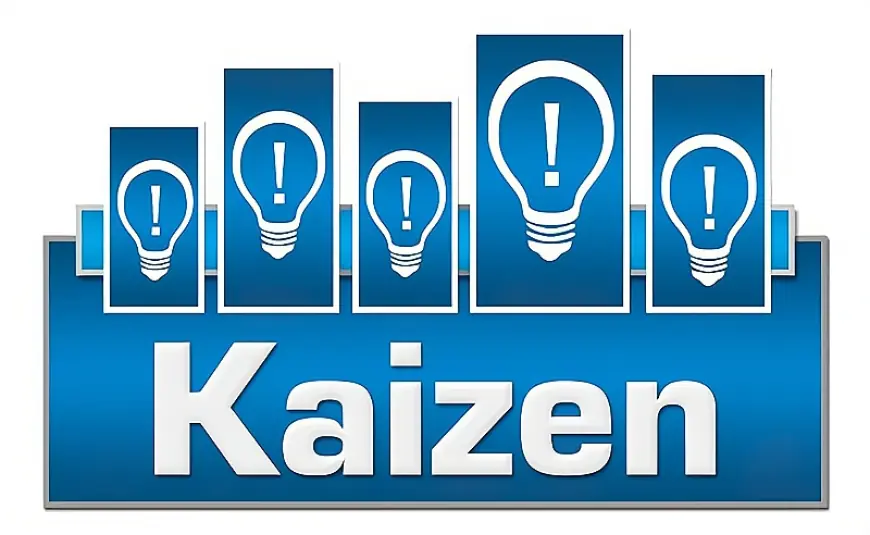The Benefits of Kaizen Events for Small Businesses

In today’s fast-paced business environment, small businesses must constantly adapt to remain competitive. One effective strategy for driving improvements and fostering a culture of continuous development is hosting Kaizen Events. These focused, team-oriented workshops aim to identify and implement specific improvements within a short period, often yielding significant results. In this blog, we’ll explore the numerous benefits of Kaizen Events for small businesses and provide insights into how they can transform your operations.
What is a Kaizen Event?
A Kaizen Event is a short-term, intensive workshop that brings together a cross-functional team to solve a particular issue or enhance a specific process. Derived from the Japanese term "Kaizen," meaning "continuous improvement," these events are a cornerstone of lean management. Typically lasting 3-5 days, a Kaizen Event involves:
-
Identifying a process or area for improvement.
-
Gathering a diverse team of stakeholders.
-
Analyzing the current process to pinpoint inefficiencies.
-
Brainstorming and implementing actionable solutions.
-
Reviewing results and standardizing changes.
Why Should Small Businesses Consider Kaizen Events?
Small businesses often operate with limited resources and tight budgets. Implementing Kaizen Events can help these businesses:
1. Boost Operational Efficiency
Kaizen Events are designed to identify waste and inefficiencies in processes. For small businesses, this can mean:
-
Reducing time spent on redundant tasks.
-
Streamlining workflows for better productivity.
-
Optimizing resource allocation.
For example, a retail business might use a Kaizen Event to revamp its inventory management system, reducing overstock and minimizing carrying costs.
2. Enhance Employee Engagement
Involving employees in a Kaizen Event empowers them to contribute ideas and take ownership of improvements. This inclusivity:
-
Fosters a sense of belonging and accountability.
-
Encourages collaboration across departments.
-
Motivates employees to maintain and build on improvements.
3. Improve Customer Satisfaction
By streamlining processes and eliminating inefficiencies, small businesses can provide better service to their customers. Faster delivery times, improved product quality, and enhanced communication are just a few benefits that can arise from a well-executed Kaizen Event.
4. Drive Cost Savings
Eliminating waste not only improves efficiency but also reduces operational costs. For small businesses operating on slim margins, this can make a significant difference. Examples include:
-
Lowering energy consumption by optimizing workflows.
-
Reducing raw material waste through process refinement.
5. Foster a Culture of Continuous Improvement
Kaizen Events instill a mindset of ongoing development within a business. This culture ensures that employees consistently seek out opportunities for improvement, leading to sustained growth over time.
Steps to Conduct a Successful Kaizen Event
For small businesses, a successful Kaizen Event requires careful planning and execution. Here’s a step-by-step guide:
Step 1: Define Objectives
Clearly outline the goal of the Kaizen Event. Is it to reduce production downtime? Improve order processing? Ensure the objective is specific and measurable.
Step 2: Assemble the Team
Select a diverse group of employees who are familiar with the process being addressed. Include individuals from different departments to gain varied perspectives.
Step 3: Analyze the Current Process
Use tools like process mapping or value stream mapping to visualize the workflow and identify pain points.
Step 4: Develop and Implement Solutions
Brainstorm potential solutions and prioritize actionable ideas. Implement these changes during the event to test their effectiveness.
Step 5: Measure and Standardize Results
Evaluate the outcomes against your objectives. Document the new process and train employees to ensure consistency.
Step 6: Celebrate and Reflect
Acknowledge the team’s efforts and celebrate the successes. Conduct a debrief to discuss lessons learned and identify areas for future improvement.
Examples of Kaizen Event Applications for Small Businesses
Retail
A small clothing boutique used a Kaizen Event to reorganize its storage area, reducing the time spent searching for inventory by 30%.
Manufacturing
A local furniture manufacturer streamlined its production line, cutting lead times by 20% and improving on-time delivery rates.
Hospitality
A family-owned café optimized its kitchen layout, enabling faster order preparation and enhancing customer satisfaction.
Healthcare
A small dental clinic used a Kaizen Event to redesign patient scheduling, reducing appointment wait times and increasing patient throughput.
Common Challenges and How to Overcome Them
While Kaizen Events offer numerous benefits, small businesses may encounter challenges such as:
Resistance to Change
Employees may be hesitant to adopt new processes. Overcome this by:
-
Clearly communicating the benefits.
-
Involving employees in decision-making.
-
Providing adequate training and support.
Limited Resources
Small businesses might lack the manpower or time for a full-scale Kaizen Event. Address this by:
-
Focusing on smaller, incremental changes.
-
Scheduling events during slower business periods.
Sustaining Improvements
Maintaining changes after a Kaizen Event can be difficult. Ensure sustainability by:
-
Standardizing new processes.
-
Assigning responsibility for ongoing monitoring.
-
Encouraging feedback and continuous iteration.
FAQs About Kaizen Events
1. What is the main goal of a Kaizen Event?
The primary goal of a Kaizen Event is to identify and eliminate inefficiencies in a specific process, resulting in improved productivity, cost savings, and customer satisfaction.
2. How long does a typical Kaizen Event last?
Kaizen Events usually last 3-5 days, depending on the complexity of the process being addressed.
3. Do Kaizen Events work for all industries?
Yes, Kaizen Events can be applied across various industries, including manufacturing, retail, healthcare, and services. The principles of continuous improvement are universal.
4. Can small businesses afford to host Kaizen Events?
Absolutely. Kaizen Events are cost-effective because they focus on rapid, impactful changes that deliver immediate results. The long-term savings often outweigh the initial investment.
5. How do you measure the success of a Kaizen Event?
Success can be measured by comparing key performance indicators (KPIs) before and after the event. Examples include reduced lead times, cost savings, and improved customer satisfaction scores.
Conclusion
For small businesses looking to improve efficiency, reduce costs, and foster a culture of continuous improvement, hosting a Kaizen Event is a powerful strategy. By focusing on specific processes and involving employees at all levels, these events can drive meaningful changes that positively impact the bottom line. Whether you’re streamlining workflows, improving customer experiences, or cutting operational costs, the benefits of Kaizen Events are well worth the effort. Start planning your first Kaizen Event today and watch your business thrive!
What's Your Reaction?
 Like
0
Like
0
 Dislike
0
Dislike
0
 Love
0
Love
0
 Funny
0
Funny
0
 Angry
0
Angry
0
 Sad
0
Sad
0
 Wow
0
Wow
0


















































